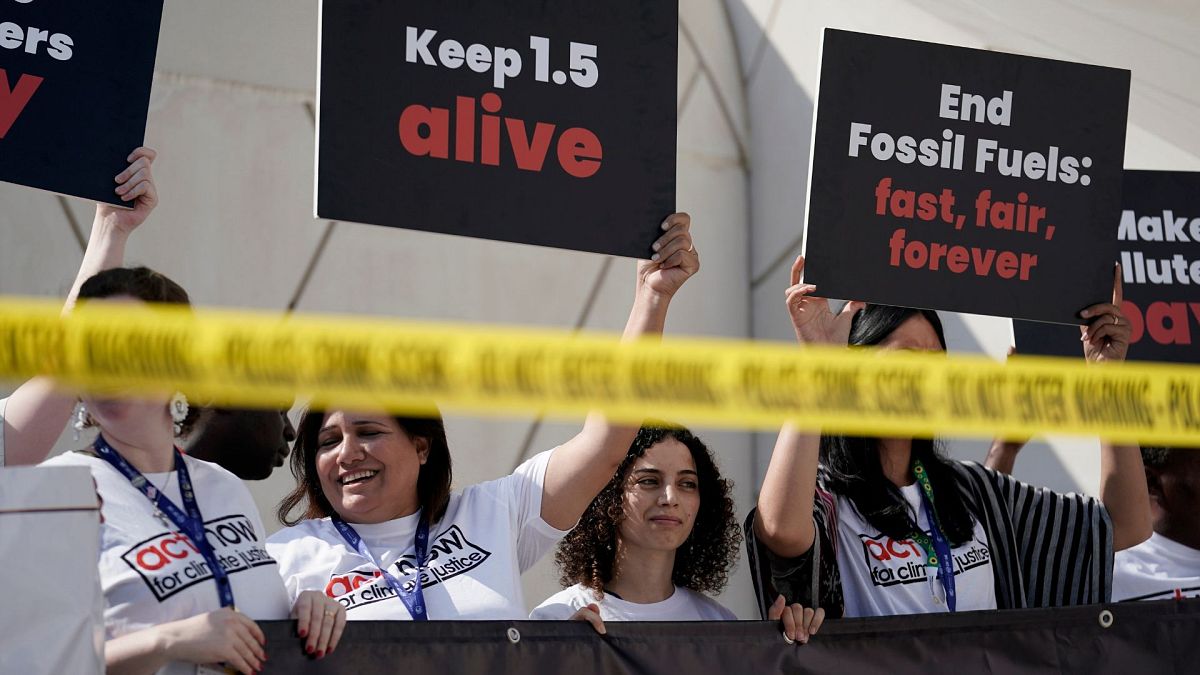The biggest ever public survey on climate change shows widespread support for stronger action.
Around 80 per cent of Italians want their country to focus on protecting and restoring nature – yet the government was among a handful to vote against the EU’s landmark Nature Restoration Law on Monday.
That’s just one small insight from the People’s Climate Vote, the biggest ever standalone public opinion survey on climate change, which was released today.
Respondents from around the world echoed this call for governments to do more, with 80 per cent saying they want stronger action on climate change.
An even higher number – 86 per cent – want their countries to set aside geopolitical differences and work together on issues impacting our planet. In the EU, this number rose to 92 per cent.
Covering 77 countries and 87 per cent of the world’s population, the survey was jointly carried out by the United Nations Development Programme (UNDP) and the University of Oxford in the UK.
It also asked respondents about topics like climate anxiety and the fossil-fuel phaseout. Here’s what it found.
Is the global public in favour of a fossil fuel phaseout?
The survey found that nearly three-quarters (72 per cent) of people around the world want to move away from fossil fuels quickly in favour of clean energy.
In the EU, this number rises to 77 per cent, showing widespread support for climate action, despite fears that the recent election results could stall progress of the Green Deal.
Among the major supporters of a phaseout are many of the world’s top producers of oil, coal and gas – including Nigeria and Türkiye (both 89 per cent), China (80 per cent), Germany (76 per cent), Saudi Arabia (75 per cent), Australia (69 per cent) and the US (54 per cent).
Italy also showed strong support with 89 per cent of people in favour.
Russia was the least supportive of a quick transition away from fossil fuels, with just 16 per cent of people in favour.
Only 7 per cent of people globally said their country should not transition at all.
People want stronger climate action from governments
Citizens of 20 of the world’s biggest greenhouse gas emitters believe their governments aren’t doing enough to combat climate change.
Italians showed the greatest support for stronger climate action, with 93 per cent of people voting in favour. In Iran, 88 per cent of people agreed, 85 per cent in Brazil, 77 per cent in South Africa and India, 73 per cent in China, 67 per cent in Germany, and 66 per cent in the US and Russia.
In particular, 78 per cent of people wanted their country to provide more protection from extreme weather, and 81 per cent of people said their country should do a lot to protect and restore nature.
Four-fifths of people said they wanted more climate change education in schools.
In many high-emitting countries, women were more likely to support strengthening their country’s climate commitments. This trend was seen most clearly in Germany, where 75 per cent of women voted in favour versus 58 per cent of men.
Are people worried about climate change?
Around the globe, 56 per cent of people said they think about climate change regularly – every day or week. In the world’s Least Developed Countries (LDCs), which contribute least to climate change but suffer its worst effects, this number rose to 63 per cent.
Climate anxiety is growing year on year, with 53 per cent of people saying they are more worried about climate change now than last year and 43 per cent saying extreme weather events were worse than usual this year.
Across the nine Small Island Developing States (SIDS) surveyed – including Vanuatu, which is at risk of becoming submerged by water by the end of the century – 71 per cent of people said they are more worried about climate change now compared to last year.
These fears are having a real world impact on many of the world’s most vulnerable people. In LDCs, 74 per cent of respondents said big decisions like where to live or work, and what to buy, were being affected by climate change.
In western and northern Europe, this figure dropped to 52 per cent, while in North America, it was 42 per cent.
The survey was a “huge scientific endeavour” that produced “some of the very highest quality global data on public opinions on climate change available,” says Professor Stephen Fisher from the University of Oxford’s Department of Sociology.
Special efforts were made to include people from marginalised groups in the poorest parts of the world, including nine countries that had never before been polled on climate change.
“These results are undeniable evidence that people everywhere support bold climate action,” says Cassie Flynn, Global Director of Climate Change for UNDP. She believes the survey should inform the next round of Paris Agreement commitments, set to be decided by world leaders in 2025.
“The next two years stand as one of the best chances we have as the international community to ensure that warming stays under 1.5°C,” she adds.
Through its Climate Promise initiative, UNDP aims to support policymakers in increasing their ambition on climate and executing their action plans successfully.
Key targets for 2030 include reducing greenhouse gas emissions, phasing out fossil fuels, tripling renewable energy supply and preventing deforestation.

